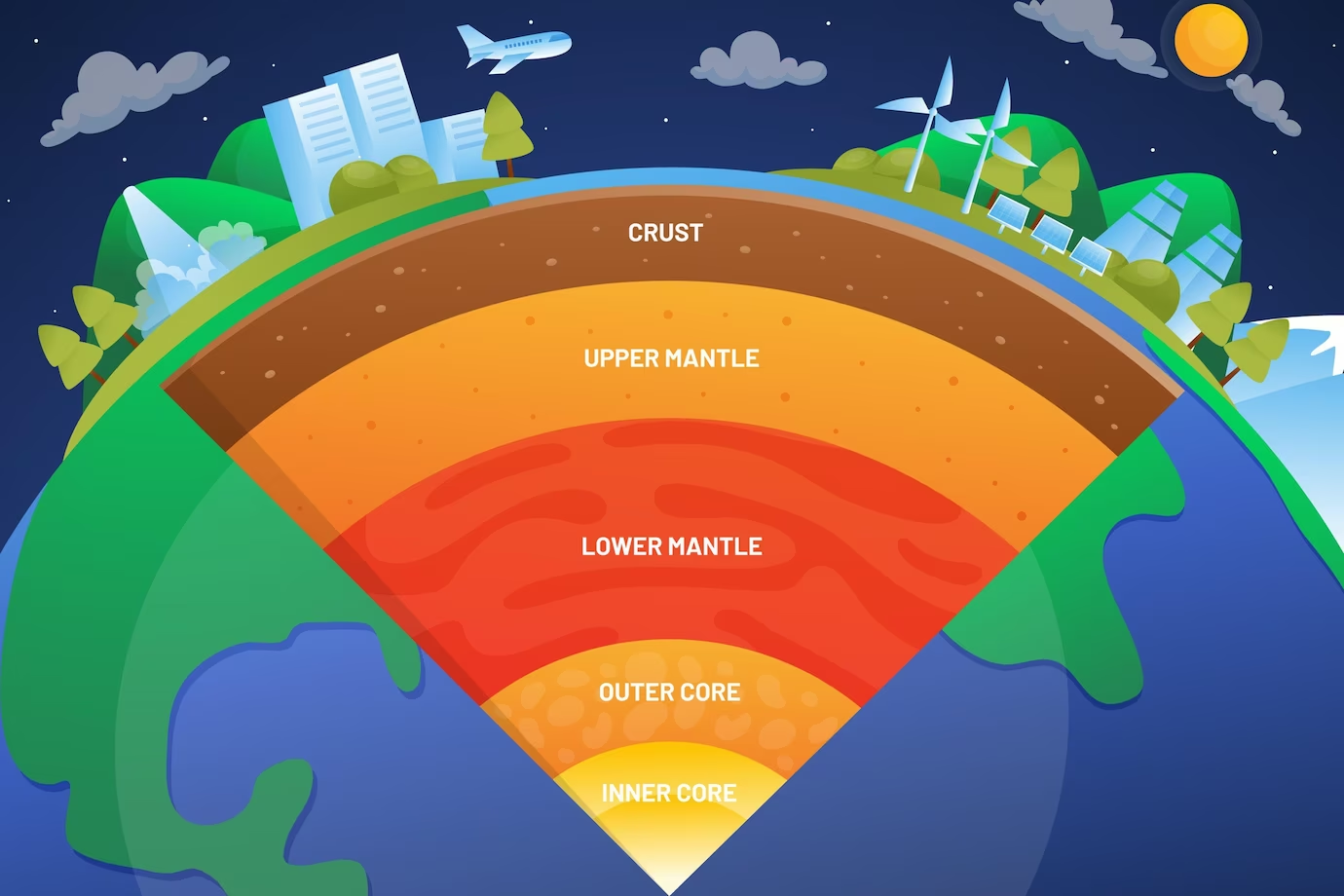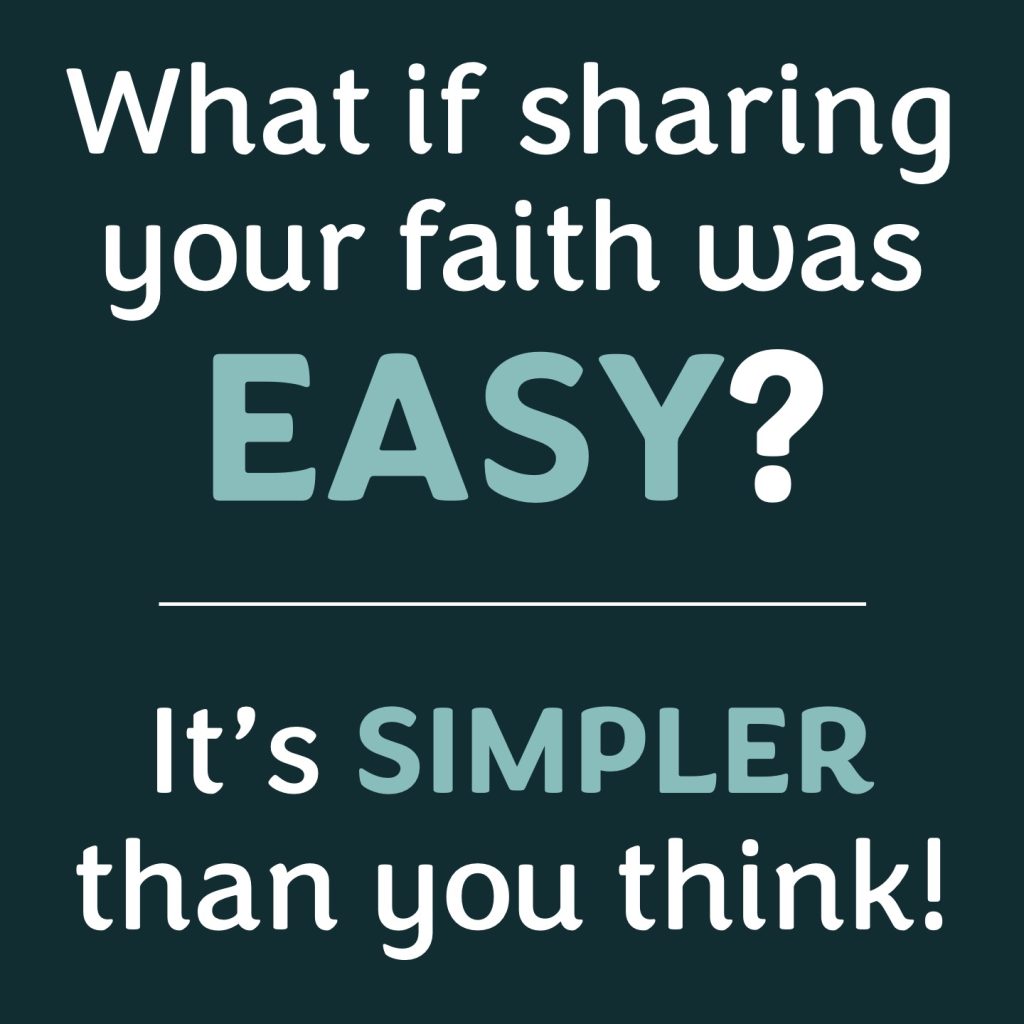Tell Me Why
 Reading Time: 3 mins
Reading Time: 3 mins
It’s been a little over years since I really started to pay attention to why people struggle to share their faith. I’m confident that any sort of church poll would reveal a problem… that many people do struggle and actively avoid sharing the gospel, but I’m actually more concerned with why. Allow me to explain it how my weird brain understands it.
If you can, imagine one of those fifth-grade model diagrams of the earth. If you’ve never seen one, try to picture the whole earth as if you were looking at it from the moon with one hemisphere cut out like a slice of cake. Inside the earth, there are layers. Moving from top to bottom, outermost to innermost, there’s the crust, the upper mantle, the lower mantle, the outer core, then the inner core. We live on the earth’s crust, with the other layers moving closer and closer to the center of the planet, the core. You didn’t know you were going to get a whole geology lesson, did you?
When I think about people sharing their faith, I often go back to this idea of layers. Layer one, the easiest, most accessible layer, much like the crust in our example, is the simple statement, “Christians are supposed to share the gospel with people.” Most Christians understand this expectation, but that’s as far as they’ve taken it. Let’s dig down one layer, moving to the “upper mantle” of our idea. It’s here, with a little bit of critical thinking and self-reflection, that some get to the idea, “I don’t share the gospel as much as I probably should.” And, in my experience through the hundreds of conversations I’ve had with teenagers and adults about evangelism, this is where most people stop thinking about it.
“I don’t do it as much as I should” can invoke a lot of negative emotions like shame, guilt, anxiety, and failure. So many people are content to just leave it at that and focus on other things.
But what happens when we dig another layer down? What happens when someone actually pushes through and asks the lower mantle question, “WHY don’t I share the gospel as much as I probably should?” Ah, now we’re getting somewhere! Now our feelings of shame, guilt, anxiety, and failure are being challenged. There’s a real curiosity and desire to not only know that there is a problem, but to discover what the problem really is.
For example, I don’t like playing chess. I’ve identified something I avoid. But why don’t I like playing chess? Because my friend, RT, wipes the checkered floor with me every time we play! I don’t like to lose… so I avoid it. When it comes to sharing our faith, it is important to know that we should, and it’s important to be aware of whether we do it as much as we intend to, but if we stop there, we’ll never actually know what’s stopping us! So, we push through and ask the hard question, “Why don’t I?” And it’s here, friends, that we finally come full circle, because we just figured out how to discover our gospel gaps.

If you recall, a gospel gap is defined as the distance between the knowledge that someone is lost and the action required to bring that person the gospel message. They are essentially the “why not” layer of our evangelism-earth-layer model.
Let’s pause for a moment and talk about this layer. You and I are very different people. I probably don’t even know you, but I can say with confidence that you and I have different stories, different experiences, and we come from different places. You know different people than I do. You have a different job than I do. You go to a different church, or maybe you don’t go to church at all. And because of all those differences, it can be easy to think that we have completely different reasons and motives behind our hesitation to share the gospel with those around us.
But the reality is that those differences really don’t make much of a difference… See what I did there? Our human hesitations to share the good news of Jesus might express themselves in many ways, but what I’ve come to realize over the last few years is that those hesitations all seem to stem from the same basic roots.
You are not alone. Check out our next post for some fascinating and incredibly encouraging data that proves beyond a shadow of a doubt that you’re in good company with believers all over the world wrestling with gospel gaps.
